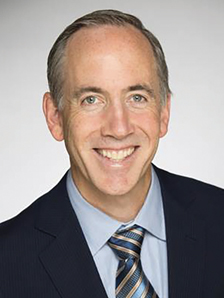
Failing to Succeed as a Leader Part 1
“I actually believe that success teaches you nothing. Failure teaches you everything.”
-James Dyson
“The purpose of life is to be defeated by greater and greater things.”
-Rainier Maria Rilke
 If we don’t fail to succeed, we will fail to succeed. Inventor James Dyson gets it. The great German poet Rainier Maria Rilke gets it. So do many of the wisest and most successful leaders. It’s a truth that extends far beyond business success as well. Before our careers are over, and before our lives are through, we will have experienced an inordinate number of mistakes, missteps, flops, fiascos, dead ends and defeats. In short, our work and personal lives are strewn with the wreckage of loss and failure. How we handle failure and learn to use failure will ultimately define us and contribute greatly to our success and well-being.
If we don’t fail to succeed, we will fail to succeed. Inventor James Dyson gets it. The great German poet Rainier Maria Rilke gets it. So do many of the wisest and most successful leaders. It’s a truth that extends far beyond business success as well. Before our careers are over, and before our lives are through, we will have experienced an inordinate number of mistakes, missteps, flops, fiascos, dead ends and defeats. In short, our work and personal lives are strewn with the wreckage of loss and failure. How we handle failure and learn to use failure will ultimately define us and contribute greatly to our success and well-being.
Powerful emotions accompany failure, intensified by a culture obsessed with who is winning and who is losing, a culture that too often delivers the message that “failure is not an option.” We work hard not to be a loser, a failure, not to make a killer mistake, not to be wrong or get it wrong. Happy to leave the discomfort of our stumbling journey behind, we hurry on, learning nothing. Yet that very attitude stifles the ability to extract lessons from failure.
It’s painful to dwell on difficulties, setbacks and failures. Most of us can’t wait to put such emotionally trying times behind us. Yet the best leaders are able to extract wisdom from such experiences that strengthens them in countless ways. Experience is the best teacher, but only if we thoroughly and honestly examine it.
In Learning to Lead, the great leadership guru Warren Bennis and co-author Joan Goldsmith write that “Conquering adversity and emerging stronger than ever makes for extraordinary leaders.” They label these adversities, stinging failures and difficult challenges crucible moments: “Just like the alchemists in history used crucibles in the hopes of turning other elements into gold, great leaders emerge in their own lives as a result of how they deal with their crucibles.” Some crucibles are tremendously stressful, career-threatening, even life-threatening experiences that may cause us to fundamentally question our underlying perspectives, beliefs, and values. It requires courage and discipline to examine these trying events and extract their wisdom.
What can individual leaders do to make the most of failures? Here are five practical strategies.
Mind(Re)set
Read Carol Dweck’s Mindset and consider the important distinction between a growth mindset and a fixed mindset—and the convincing research behind it. In short, you want a growth mindset based on the belief that your abilities can improve, develop and grow, not a fixed mindset that believes your skills are defined and relatively static. As Dweck says, “The passion for stretching yourself and sticking to it, even (or especially) when it’s not going well, is the hallmark of the growth mindset. This is the mindset that allows people to thrive during some of the most challenging times in their lives.” Most importantly, a growth mindset enables us to “change the definition, significance, and impact of failure,” according to Dweck. It allows us to reframe failure as central to growth. When we encounter it, we take stock of what we’ve learned through our efforts, stay resilient in the face of defeat, and remain equally willing to embrace new opportunities and accept the inherent risks.
In Sight, In Mind
We’ve all walked into offices and seen the mementos of past successes—trophies, awards, framed accomplishments. But if our failures teach us as much or more than our triumphs, why not celebrate them? Rather than keep failures out of sight, out of mind, why not keep them in sight, in mind with some visual reminder or memento? Howard Schultz, the leader who catapulted Starbucks to worldwide success, keeps a bottle of Mazagran on his desk. Don’t recall Mazagran, the carbonated coffee drink that Starbucks launched in the 1990s? That’s because it was an utter failure. Schultz says it sits on his desk as a reminder to “celebrate, learn from, and do not hide from mistakes.” No doubt, given his position as chairman and CEO, it also communicates powerfully to those around him about the kind of culture he wants to create at Starbucks.
Keep a Fail to Succeed Journal
As Carl Jung said, “Where we stumble and fall is where we find pure gold.” Turn a critical eye, rather than a blind eye to these failings. Make a habit of debriefing after significant personal setbacks, mistakes, or losses to extract the learning. Or make some room for reflection on errors and missteps in your “Gratitude Journal,” a popular daily practice of reflecting in writing on people, things and experiences we are grateful for that has been shown to demonstrably improve well-being. Be grateful for your failures and their many gifts. Among those gifts are learning, perseverance, resilience, humility, empathy, innovation, and increased self-awareness. That’s a pretty fine haul for any leader.
Debrief with a Coach or Mentor
If reflective writing isn’t your thing, then talk it out—with a coach or mentor. A trusted guide can help you skillfully examine times when results didn’t come or things got painfully off track. The purpose isn’t to wallow in despair or embarrassment, but to sharpen your insights and syphon learning from the muck of defeats. Failures provide rich information and the seeds of transformative insights about our projects, our methods and ourselves.
Tell Failure Stories
I’ve written here about the many benefits of storytelling for leaders. Personal stories can become powerful collective stories that create connection, purpose, and engagement in others. Looking for the source of your own powerful stories? Consider your past experiences of reaching for the stars and falling on your face, venturing overconfidently into troubled waters, or having your best-laid plans scattered by heavy winds. Told well, these stories reinforce the gifts of failure that are the makings for great corporate cultures—like perseverance, resilience, and innovation. They also enhance relationships. After all, our trust grows for those who can admit mistakes and defeats.
Fearing failure, not recognizing its deep and enriching gifts, may be our ultimate failure. Understanding how our encounters with failure enrich us can help us embrace its power to transform our workplaces, our relationships, and ourselves. Unless we fail to succeed, we will fail to succeed.
About the Author
Jim Laughlin serves as Senior Vice President, Leadership Development for MDA Leadership Consulting and is based in the Boston area. For more than 20 years, Jim has designed and implemented learning and leadership development systems for companies worldwide. He is also a sought-after executive coach with expertise in organizational communications, change and transitions. More About Jim / LinkedIn
